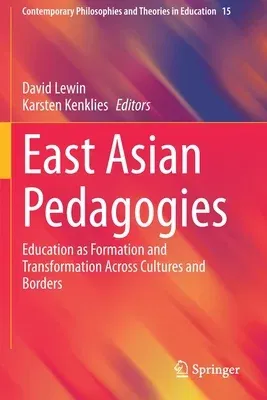East Asian Pedagogies: Education as Formation and Transformation Across Cultures and Borders (2020)Paperback - 2020, 14 July 2021

Qty
1
Turbo
Ships in 2 - 3 days
In Stock
Free Delivery
Cash on Delivery
15 Days
Free Returns
Secure Checkout
Part of Series
Contemporary Philosophies and Theories in Education
Print Length
225 pages
Language
English
Publisher
Springer
Date Published
14 Jul 2021
ISBN-10
3030456757
ISBN-13
9783030456757
Description
Product Details
Book Edition:
2020
Book Format:
Paperback
Country of Origin:
NL
Date Published:
14 July 2021
Dimensions:
23.39 x
15.6 x
1.24 cm
ISBN-10:
3030456757
ISBN-13:
9783030456757
Language:
English
Location:
Cham
Pages:
225
Publisher:
Weight:
331.12 gm

